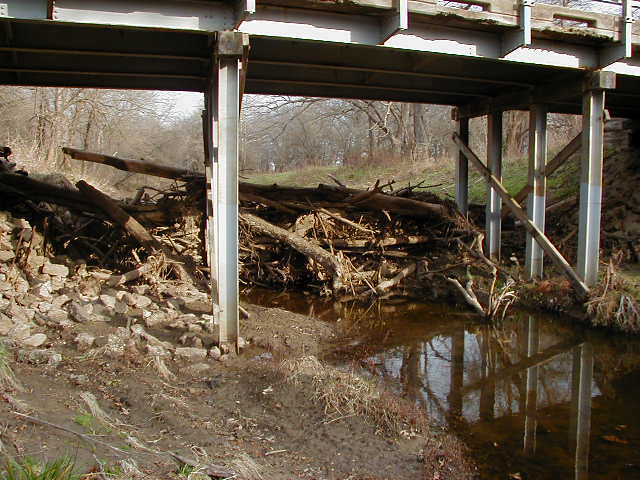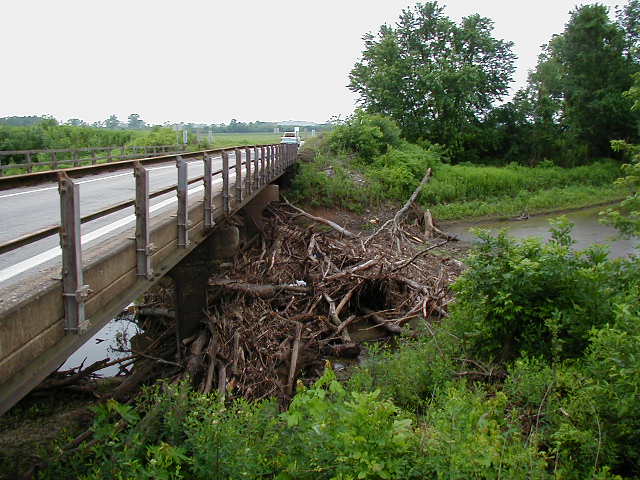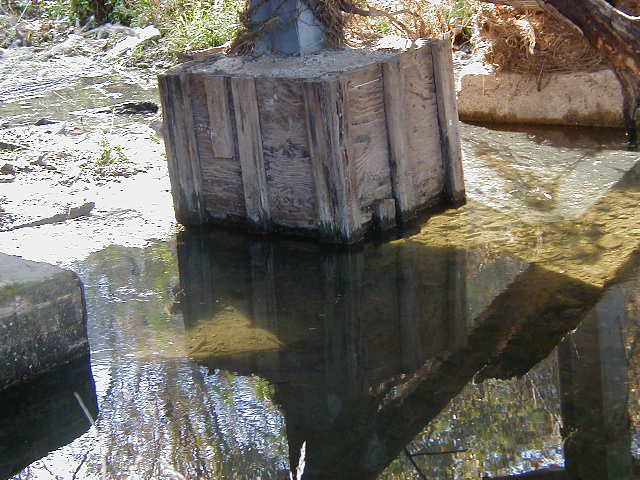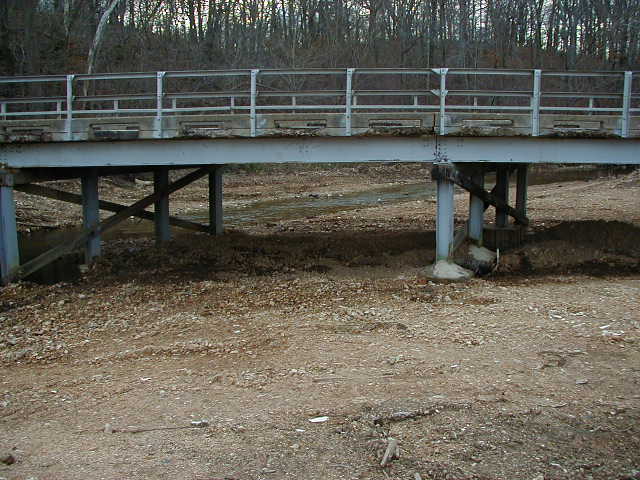771.8 Remove Drift
| Code: R327 |
Drift is removed to eliminate obstructions that could cause erosion and affect the stability of the structure. Drift is also a fire hazard. Drift in areas that are accessible without entering the water can be removed anytime. Drift that can be safely reached with equipment during high stream flows can be removed or redirected during the flood stages. Drift in water may have to be removed in summer months when streams are at their lowest levels.
Procedures
1. Drift removal methods and equipment vary from one site to another. Each site will have to be reviewed for factors such as access, size of drift pile, stream flow and depth, and others to determine the method and equipment needed for removal. Examples of possible methods and equipment include; a dragline or boom truck with clamshell bucket, backhoe or track hoe, automobile wreckers, and cable winches.
2. The drift needs to be removed from drainage area or trimmed in small enough pieces as to not pose future drift problems on downstream structures.
3. Drift should not be placed under the bridge.
Safety
Water of unknown depths and hazards, utilities in the area, size of the drift, using chainsaws and other tools to trim the drift, overhead equipment with winches and cables.



